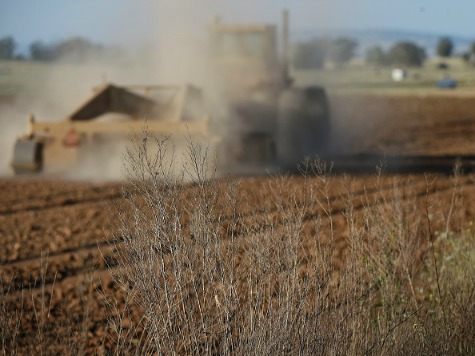On Friday, California’s top water regulators issued new cutbacks on farmers holding senior water rights dating back more than 100 years.
The State Water Resources Control Board (SWRCB) ordered the curtailment of all water diversions to farmers in the Delta, San Joaquin and Sacramento River watersheds holding senior water rights dating to 1903, according to a release from the agency. The order places new restrictions on 114 senior water rights holders in total, including the cities of Chico, Placer, Paradise, and Patterson.
The California Department of Fish and Wildlife, Department of Water Resources (DWR), and several other municipal water districts are also affected.
The new cutbacks come as California grapples through the fourth year of a record drought. In April, Gov. Jerry Brown issued mandatory restrictions on urban water use, but the governor and top water officials faced criticism for exempting agriculture from the plan.
The restrictions are the first placed on senior water rights holders since 1977, according to the Board. Water diversions for roughly 9,000 junior water rights holders, or those with rights after 1914, had already been curtailed for a second consecutive year.
The Board says cuts for more senior water rights holders and farmers in other watersheds “may be imminent” as the state continues to monitor the effects of the drought.
The cutbacks could cause farmers to abandon thousands of acres of viable farmland, says Aubrey Bettencourt, executive director of the nonprofit California Water Alliance.
“I’m already receiving calls from farmers in the North San Joaquin Valley and the Sacramento Valley saying they’ll lose entire tomato and rice crops,” Bettencourt told Breitbart News. “I would expect the fallowed acreage to increase, and to hear more stories of farmers walking away from crops already in the ground.”
In May, some farmers with senior water rights negotiated with state regulators to cut use by 25 percent in exchange for an exemption from cuts during growing season.
California has struggled to conserve water during the drought. Statewide urban water use fell 13.9% in April, a significant improvement over single-digit percentages in February and March, but a long way from Brown’s 25 percent target.
